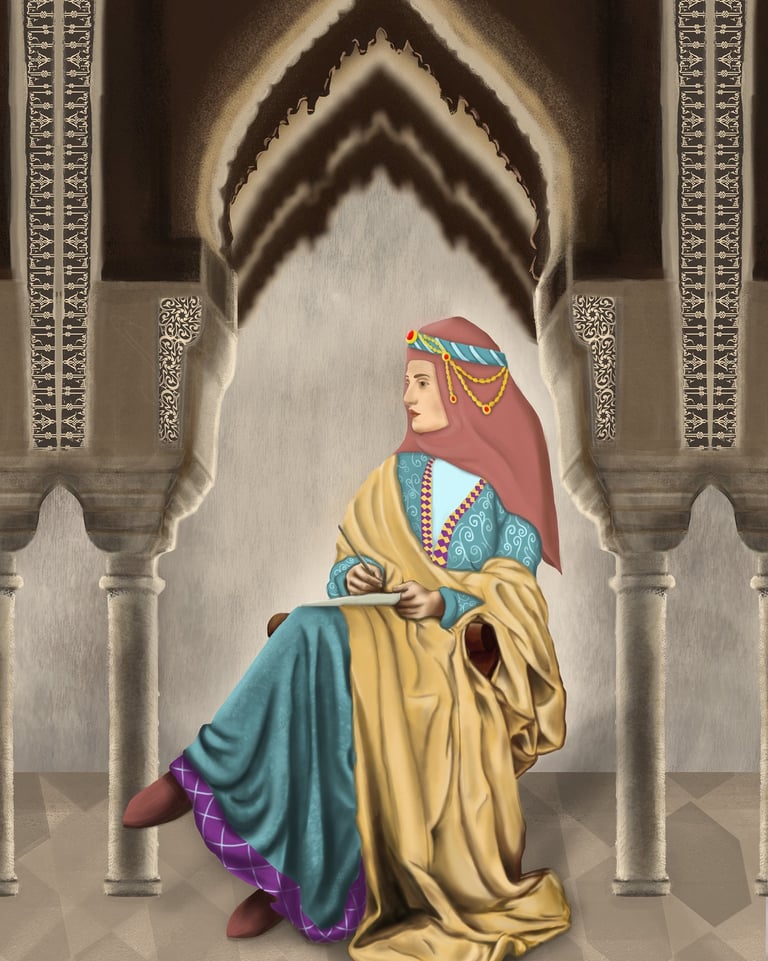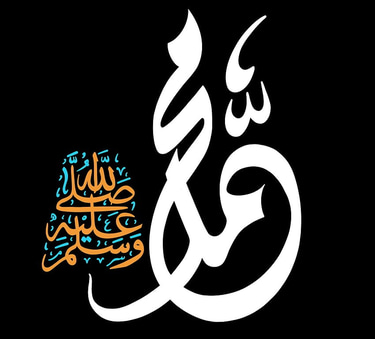Most Influential Muslims with Greatest Contributions
Scientists and Inventors
· Al-Haytham (c. 965-c. 1040): Physicist and mathematician known as the "father of optics."
· Jabir ibn Hayyan (Geber) (c. 721-c. 801): Chemist and alchemist who made significant contributions to chemistry.
· Ibn al-Nafis (c. 1210-c. 1288): Physician who discovered the pulmonary circulation of blood.
· Al-Jazari (c. 1136-c. 1206): Engineer and inventor who designed and built numerous mechanical devices.
· Ibn al-Haytham (c. 965-c. 1040): Physicist who made significant contributions to optics.
· Al-Kindi (c. 801-c. 873): Philosopher and mathematician who made contributions to optics and astronomy.
· Al-Tusi (1201-1274): Mathematician, astronomer, and philosopher who made significant contributions to trigonometry and astronomy.
· Al-Idrisi (c. 1100-c. 1166): Geographer who created a detailed world map.
· Al-Farghani (c. 805-c. 879): Astronomer who wrote on the movements of the stars.
Leaders and Statesmen
· Saladin (1138-1193): Kurdish Muslim leader who united Egypt and Syria and defeated the Crusaders at the Battle of Hattin.
· Muhammad Ali Pasha (1769-1849): The founder of modern Egypt who initiated economic and social reforms.
· Mustafa Kemal Atatürk (1881-1938): The founder of modern Turkey who led the Turkish War of Independence and established a secular republic.
· Shah Jahan (1592-1666): A Mughal emperor who built the Taj Mahal.
· Omar ibn al-Khattab (c. 581-644): The second caliph of the Islamic state who expanded the empire and implemented social justice reforms.
· Sufian ibn Abd al-Malik (691-715): A Umayyad caliph who promoted religious tolerance and cultural exchange.
· Ibn Sina (980-1037): Philosopher and physician who also served as a vizier in several Central Asian courts.
· Al-Biruni (973-1048): Polymath who served in the courts of several Central Asian rulers.
· Ibn Battuta (1304-1377): Traveler and explorer who served in the courts of several Muslim rulers.
Others Remarkable Achievements by Prominent Muslims
· Fatima al-Fihri (857–859): Founded the first university in the world (University of Al Quaraouiyine).
. Rumi (1207-1273): A Persian poet and mystic known for his Sufi poetry.
· Hafiz (c. 1320-1390): A Persian poet known for his lyrical poetry and love poems.
· Ibn Arabi (1165-1240): A Spanish-born Sufi mystic and philosopher.
· Al-Ghazali (1058-1111): A Persian philosopher and theologian who wrote on Islamic theology and mysticism.
· Ibn Majah (c. 827-c. 887): A hadith scholar who compiled a collection of hadiths.
· Ibn Qayyim al-Jawziyyah (1292-1350): A scholar and theologian who wrote on various Islamic topics.
· Ibn al-Qifti (c. 1203-c. 1279): A historian and bibliographer who wrote a biographical dictionary of Islamic scholars.
· Ibn al-Nafis (c. 1210-c. 1288): Physician who also wrote on medical ethics and philosophy.
· Al-Farabi (c. 870-c. 950): Philosopher and musician who wrote on ethics and political philosophy.
· Al-Jahiz (c. 776-c. 869): Polymath who wrote on various subjects, including literature, zoology, and sociology.
· Al-Tusi (1201-1274): Mathematician, astronomer, and philosopher who made significant contributions to trigonometry and astronomy.
· Al-Idrisi (c. 1100-c. 1166): Geographer who created a detailed world map.
· Ibn Khaldun (1332-1406): Historian and sociologist who wrote on social and economic history.
· Ibn Battuta (1304-1377): Traveler and explorer who wrote a detailed account of his travels.
· Sufian ibn Abd al-Malik (691-715): Caliph who promoted religious tolerance and cultural exchange.
· Al-Masudi (c. 896-c. 956): Historian and geographer who wrote a comprehensive history of the world.
· Al-Baghdadi (c. 1058-1131): Engineer who designed and built water-powered devices.
· Ibn al-Haytham (c. 965-c. 1040): Physicist who also made contributions to engineering, particularly in the field of optics.
· Ibn al-Razzaz al-Jazari (c. 1136-c. 1206): Engineer who designed and built hydraulic devices and automata.
· Al-Ghazali (1058-1111): Philosopher and theologian who also wrote on various scientific topics.
· Ibn al-Qifti (c. 1203-c. 1279): Historian and bibliographer who wrote a biographical dictionary of Islamic scholars.


Scholars and Philosophers
· Ibn Sina (Avicenna) (980-1037): Polymath who made significant contributions to medicine, philosophy, and astronomy.
· Ibn Rushd (Averroes) (1126-1198): Philosopher and physician known for his commentaries on Aristotle's works.
· Al-Khwarizmi (c. 780-c. 850): Mathematician and astronomer considered the "father of algebra."
· Farabi (c. 870-c. 950): Philosopher and musician who wrote on logic, metaphysics, and ethics.
· Al-Jahiz (c. 776-c. 869): Polymath who wrote on various subjects, including literature, zoology, and sociology.
· Al-Biruni (973-1048): Polymath who made contributions to mathematics, astronomy, and geography.
· Ibn Battuta (1304-1377): Moroccan explorer who traveled extensively throughout the Islamic world and beyond.
· Al-Zahrawi (c. 936-1013): Surgeon and physician known as the "father of surgery."
· Al-Razi (c. 865-925): Physician and philosopher who made significant contributions to medicine and chemistry.
· Ibn Khaldun (1332-1406): Historian and sociologist who wrote on social and economic history.
